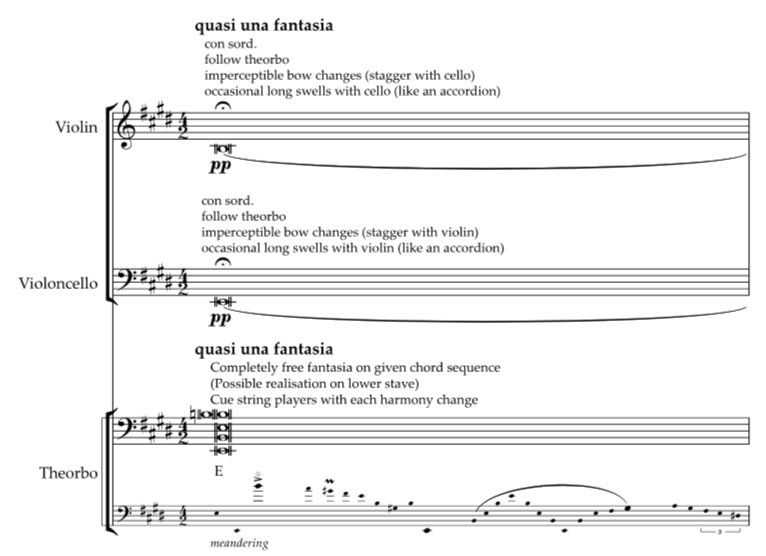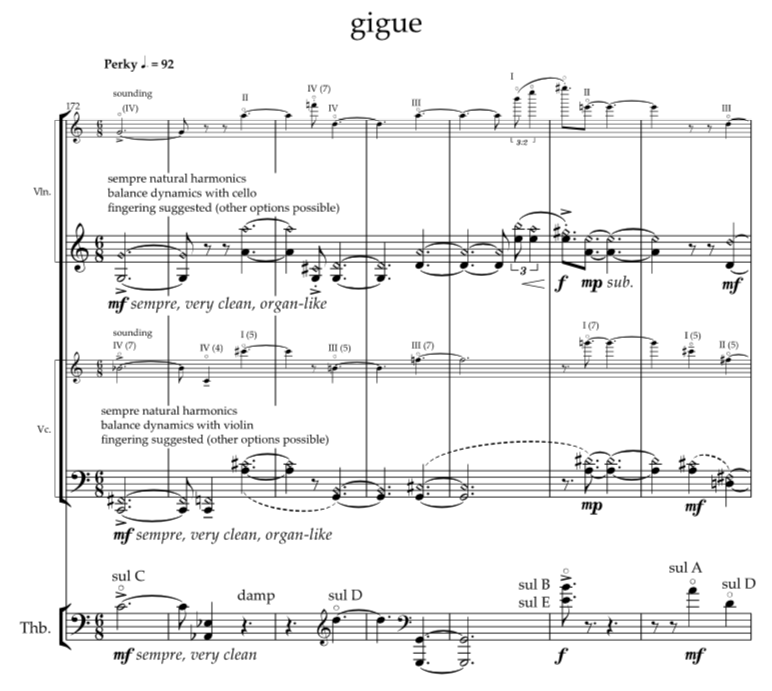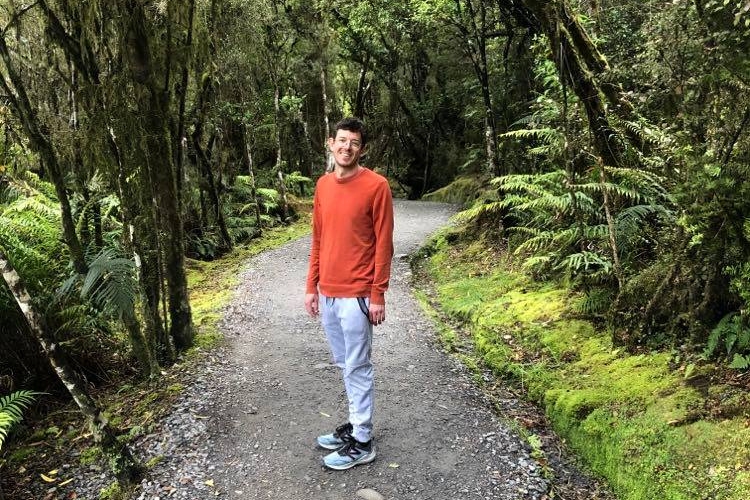Alex Taylor's On What Grounds for violin, cello and theorbo will be premiered on 15 April in Whangārei as part of Chamber Music New Zealand's Les Voisins tour. Sarah Ballard caught up with Alex to find out about life in San Diego and his latest works.
You have spent the last few years in San Diego, completing a PhD in music. How has that experience been for you?
It’s hard to generalize about it, but I would say it’s been both challenging and rewarding.
It’s a rich environment – both physically and intellectually – and I would say UCSD is pretty unique in how many different kinds of music-making it accommodates. I’ve been exposed to quite a range of different approaches and musical lineages.
The programme here also really encourages composers and performers to develop new collaborations, and I’ve been lucky to work closely with many of the excellent performers, both fellow grad students and faculty.
In particular, I’ve had a number of opportunities to work with singers in Susan Narucki’s vocal studio – Miguel Zazueta, Mariana Flores, Stefanie Quintin, and the wonderful staff pianist Kyle Adam Blair. I didn’t necessarily expect to be focusing so much on the voice when I came to UCSD, but it seems a crime not to write vocal music when we have such vivacious and committed singers here. So, quite a few projects have come out of those relationships - perhaps the most substantial being Dryad, a song cycle for three singers and ensemble that connects different literary voices around the central figure of H.D. (Hilda Doolittle).
At the same time, it’s been really important for me to try to maintain connections with Aotearoa New Zealand – I feel deeply invested in our music community and grateful for all the support I’ve had at home, even if I’m not often able to be there physically. For example, I really enjoyed working with NZTrio and Nadia Reid on their NZ tour last year, and I’ve just finished a new set of pieces (Obtuse Strategies) for Henry Wong Doe, who will give the NZ premiere in June alongside some other exciting brand new commissions.
What can we expect from this new set of piano pieces?
Henry’s project is called Perspectives, and he’s commissioned a lovely group of composers to write pieces that, in some way, reflect our perspectives and experiences of the pandemic.
Like many people, I think my experience of the pandemic has been very isolated and very mundane, and it became hard to find routine and motivation, and direction. So these pieces are attempts to find that direction – they’re little impositions of structures – little mundane rituals to hang on to amidst the malaise. The title Obtuse Strategies is a rip-off of the Brian Eno, and Peter Schmidt work Oblique Strategies which is a pack of cards suggesting all kinds of different creative strategies and approaches, things like “Use an old idea” or “Work at a different speed”.

How has your approach to composition developed since moving abroad?
In some ways I’m quite a slow, gradual sort of person; it takes me a while to get used to even the idea of change, let alone manifest it.
And judging someone’s compositional development (maybe especially one’s own) is tricky: on one hand every piece is new, and one has to develop a specific musical context and vocabulary for it, but on the other hand, every piece is like a continuation of everything else you’ve ever written.
But having said that, I’ll tentatively attempt to answer the question…
One change I’ve maybe noticed is to do with taking things a bit further, both in duration but also even in short pieces, in being more committed to the process, following the music all the way up to and even beyond the natural endpoint of an idea. Maybe this is most obvious in my most recent piece, Inclinations. I’m not sure I would have written twenty solid minutes of ascending quartertones four or five years ago.
I think I’m also more comfortable now with my music being unadorned, finding beauty in that, stripping away the extraneous textural effects and orchestrational sleights of hand and just focusing on what makes the music tick, being comfortable with just being really transparent, straightforward, even obvious or naive.
Tell us about your new piece on what grounds.
This is actually a piece I wrote back in 2021 – the original Chamber Music New Zealand tour had to be postponed due to Covid lockdowns. Violinist Justine Cormack approached me about writing something for her, cellist James Bush, and theorbist-guitarist Simon Martyn-Ellis, as part of their colourful and eclectic programme, Les Voisins, which combines French Baroque music with Ravel and Hot Club jazz. Justine invited me to respond in some way to the repertoire they had programmed, as well as the unusual instrumentation.
I was particularly drawn to the theorbo repertoire and the music of the French Baroque – the subtle variations in figuration, the mesmeric repeating patterns, the lamenting quality of the instrument. The way I conceptualised the piece is as a reimagining of the Baroque Suite, centring around the iconic ground bass of the Sarabande.
I think what you’ll hear with this piece is me getting to grips with the theorbo as an instrument, as well as playing with these historical forms, and some harmonic distortions where the fretted theorbo comes into contact with its more flexible stringed cousins.
It’s a series of musical games really, but hopefully with an emotional core to it.

You have often focused on working closely with specific performers throughout your compositional career. What does the composer/performer relationship mean to you? And how has it been in this case working with the performers from afar?
I think it’s very important to me, the composer-performer relationship. Performers communicate our vision, they’re our advocates, they bring our music to life. And I really try to think about my music from the perspective of how the sound is actually made, what the performer will have to do to turn the abstract idea of the piece into sounding reality.
Being in touch with the theorbist, Simon Martyn-Ellis, was particularly important for this piece, as I really had to learn the ropes as I was going – the theorbo is a strange beast, and I don’t know if I’ve necessarily mastered the idiom yet! But Simon was able to give me a lot of practical advice early on.
I’m sad not to be able to be in NZ for the rehearsals and performances, but I know Justine, James and Simon will do an excellent job! And an eleven-concert tour of a new piece is just a dream - we so rarely get a platform like that.
Do you have any plans post-doctorate? What's on the horizon for you?
I think the plan at this stage is to try and get a job! And to keep writing music. One foot in front of the other.
